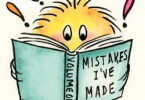IELTS Reading: Britain needs strong TV industry - Phân tích từ vựng
Hãy cùng chúng mình đọc qua bài đọc IELTS bên dưới và xem phân tích ý nghĩa các từ vựng mới nhé!
Britain needs strong TV industry
Comedy writer Armando Iannucci has called for an industry-wide defence of the BBC and British programme-makers. "The Thick of It" creator made his remarks in the annual MacTaggart Lecture at the Edinburgh TV Festival.
"It's more important than ever that we have more strong, popular channels... that act as beacons, drawing audiences to the best content," he said. Speaking earlier, Culture Secretary John Whittingdale rejected suggestions that he wanted to dismantle the BBC.
'Champion supporters'
Iannucci co-wrote "I'm Alan Partridge", wrote the movie "In the Loop" and created and wrote the hit "HBO" and "Sky Atlantic show Veep". He delivered the 40th annual MacTaggart Lecture, which has previously been given by Oscar winner Kevin Spacey, former BBC director general Greg Dyke, Jeremy Paxman and Rupert Murdoch. Iannucci said: "Faced with a global audience, British television needs its champion supporters."
He continued his praise for British programming by saying the global success of American TV shows had come about because they were emulating British television. "The best US shows are modelling themselves on what used to make British TV so world-beating," he said. "US prime-time schedules are now littered with those quirky formats from the UK - the "Who Do You Think You Are"'s and the variants on "Strictly Come Dancing" - as well as the single-camera non-audience sitcom, which we brought into the mainstream first. We have changed international viewing for the better."
With the renewal of the BBC's royal charter approaching, Iannucci also praised the corporation. He said: "If public service broadcasting - one of the best things we've ever done creatively as a country - if it was a car industry, our ministers would be out championing it overseas, trying to win contracts, boasting of the British jobs that would bring." In July, the government issued a green paper setting out issues that will be explored during negotiations over the future of the BBC, including the broadcaster's size, its funding and governance.
Primarily Mr Whittingdale wanted to appoint a panel of five people, but finally he invited two more people to advise on the channer renewal, namely former Channel 4 boss Dawn Airey and journalism professor Stewart Purvis, a former editor-in-chief of ITN. Iannucci bemoaned the lack of "creatives" involved in the discussions.
"When the media, communications and information industries make up nearly 8% our GDP, larger than the car and oil and gas industries put together, we need to be heard, as those industries are heard. But when I see the panel of experts who've been asked by the culture secretary to take a root and branch look at the BBC, I don't see anyone who is a part of that cast and crew list. I see executives, media owners, industry gurus, all talented people - but not a single person who's made a classic and enduring television show."
'Don't be modest'
Iannucci suggested one way of easing the strain on the licence fee was "by pushing ourselves more commercially abroad".
"Use the BBC's name, one of the most recognised brands in the world," he said. "And use the reputation of British television across all networks, to capitalise financially overseas. Be more aggressive in selling our shows, through advertising, through proper international subscription channels, freeing up BBC Worldwide to be fully commercial, whatever it takes.
"Frankly, don't be icky and modest about making money, let's monetise the bejesus Mary and Joseph out of our programmes abroad so that money can come back, take some pressure off the licence fee at home and be invested in even more ambitious quality shows, that can only add to our value."
Mr Whittingdale, who was interviewed by ITV News' Alastair Stewart at the festival, said he wanted an open debate about whether the corporation should do everything it has done in the past. He said he had a slight sense that people who rushed to defend the BBC were "trying to have an argument that's never been started".
"Whatever my view is, I don't determine what programmes the BBC should show," he added. "That's the job of the BBC." Mr Whittingdale said any speculation that the Conservative Party had always wanted to change the BBC due to issues such as its editorial line was "absolute nonsense".
Ý nghĩa các từ mới có trong bài đọc trên:
-
Defence /dɪˈfens/ (n):protection or support against attack, criticism, or infection (sự bảo vệ)
Example: When Helen criticized me, Chris came/rushed to my defence (= quickly supported me).
-
Beacon /ˈbiː.kən/ (n): a light that acts as a signal or warning (ngọn đèn dẫn đường)
Example: She was a beacon of hope in troubled times.
-
Dismantle /dɪˈsmæn.t̬əl/ (v): to get rid of a system or organization, usually over a period of time (phá bỏ, tháo dỡ)
Example: Unions accuse the government of dismantling the National Health Service.
-
Come about (phrasal verb): to happen, or start to happen (xảy ra)
Example: How did the problem come about in the first place?
-
Emulate /ˈem.jə.leɪt/ (v): to copy something achieved by someone else and try to do it as well as they have (bắt chước, sao chép)
Example: Fitzgerald is eager to emulate Martin's record of three successive world titles.
-
World-beating /ˈwɝːldˌbiː.t̬ɪŋ/ (adj): (of a person or thing) better than any other of its type (hay nhất thế giới)
Example: The Fitzwilliam is a world-beating gallery.
-
Quirky /ˈkwɜr·ki/ (adj): an unusual habit or type of behavior, or something that is strange and unexpected (kỳ lạ)
Example: a quirky sense of humor
-
Variant /ˈver.i.ənt/ (n): something that is slightly different from other similar things (biến thể)
Example: There are many colas on the market now, all variants on the original drink.
-
Governance /ˈɡʌv.ɚ.nəns/ (n): the way that organizations or countries are managed at the highest level, and the systems for doing this (sự quản trị)
Example: We aim to promote and maintain the highest standards of directorship and corporate governance.
-
Bemoaned /bɪˈmoʊn/ (v): to complain or express sadness about something (than vãn, phàn nàn)
Example: Researchers at universities are always bemoaning their lack of funds.
-
Monetise /ˈmʌn.ə.taɪz/ (v): to change something into money, or to express something in terms of money or a currency (kiếm tiền bằng việc gì đó)
Example: We can monetise website traffic by showing advertisements.
Nguồn tham khảo: IELTS Up











Bình luận